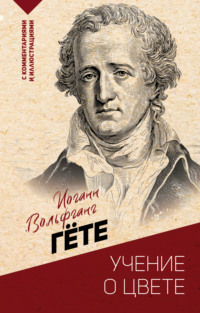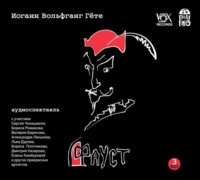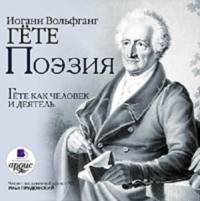 полная версия
полная версияEgmont
Machiavel. I hold him for a faithful servant of the king.
Regent. Were he so inclined, what important service could he not render to the government? Whereas, now, without benefiting himself, he has caused us unspeakable vexation. His banquets and entertainment have done more to unite the nobles and to knit them together than the most dangerous secret associations. With his toasts, his guests have drunk in a permanent intoxication, a giddy frenzy, that never subsides. How often have his facetious jests stirred up the minds of the populace? and what an excitement was produced among the mob by the new liveries, and the extravagant devices of his followers!
Machiavel. I am convinced he had no design.
Regent. Be that as it may, it is bad enough. As I said before, he injures us without benefiting himself. He treats as a jest matters of serious import; and, not to appear negligent and remiss, we are forced to treat seriously what he intended as a jest. Thus one urges on the other; and what we are endeavouring to avert is actually brought to pass. He is more dangerous than the acknowledged head of a conspiracy; and I am much mistaken if it is not all remembered against him at court. I cannot deny that scarcely a day passes in which he does not wound me – deeply wound me.
Machiavel. He appears to me to act on all occasions, according to the dictates of his conscience.
Regent. His conscience has a convenient mirror. His demeanour is often offensive. He carries himself as if he felt he were the master here, and were withheld by courtesy alone from making us feel his supremacy; as if he would not exactly drive us out of the country; there'll be no need for that.
Machiavel. I entreat you, put not too harsh a construction upon his frank and joyous temper, which treats lightly matters of serious moment. You but injure yourself and him.
Regent. I interpret nothing. I speak only of inevitable consequences, and I know him. His patent of nobility and the Golden Fleece upon his breast strengthen his confidence, his audacity. Both can protect him against any sudden outbreak of royal displeasure. Consider the matter closely, and he is alone responsible for the whole mischief that has broken out in Flanders. From the first, he connived at the proceedings of the foreign teachers, avoided stringent measures, and perhaps rejoiced in secret that they gave us so much to do. Let me alone; on this occasion, I will give utterance to that which weighs upon my heart; I will not shoot my arrow in vain. I know where he is vulnerable. For he is vulnerable.
Machiavel. Have you summoned the council? Will Orange attend?
Regent. I have sent for him to Antwerp. I will lay upon their shoulders the burden of responsibility; they shall either strenuously co-operate with me in quelling the evil, or at once declare themselves rebels. Let the letters be completed without delay, and bring them for my signature. Then hasten to despatch the trusty Vasca to Madrid, he is faithful and indefatigable; let him use all diligence, that he may not be anticipated by common report, that my brother, may receive the intelligence first through him. I will myself speak with him ere he departs.
Machiavel. Your orders shall be promptly and punctually obeyed.
SCENE III. – Citizen's House
Clara, her Mother, Brackenburg
Clara. Will you not hold the yarn for me, Brackenburg?
Brackenburg. I entreat you, excuse me, Clara.
Clara. What ails you? Why refuse me this trifling service?
Brackenburg. When I hold the yarn, I stand as it were spell-bound before you, and cannot escape your eyes.
Clara. Nonsense! Come and hold!
Mother (knitting in her arm-chair). Give us a song! You used to be merry once, and I had always something to laugh at.
Brackenburg. Once!
Clara. Well, let us sing.
Brackenburg. As you please.
Clara. Merrily, then, and sing away! 'Tis a soldier's song, my favourite.
(She winds yarn, and sings with Brackenburg.)
The drum is resounding,And shrill the fife plays;My love, for the battle,His brave troop arrays;He lifts his lance high,And the people he sways.My blood it is boiling!My heart throbs pit-pat!Oh, had I a jacket,With hose and with hat!How boldly I'd follow,And march through the gate;Through all the wide provinceI'd follow him straight.The foe yield, we captureOr shoot them! Ah, me!What heart-thrilling raptureA soldier to be!(During the song, Brackenburg has frequently looked at Clara; at length his voice falters, his eyes fill with tears, he lets the skein fall, and goes to the window. Clara finishes the song alone, her Mother motions to her, half displeased, she rises, advances a few steps towards him, turns back, as if irresolute, and again sits down.)
Mother. What is going on in the street, Brackenburg? I hear soldiers marching.
Brackenburg. It is the Regent's body-guard.
Clara. At this hour? What can it mean? (She rises and joins Brackenburg at the window.) That is not the daily guard; it is more numerous! almost all the troops! Oh, Brackenburg, go! Learn what it means. It must be something unusual. Go, good Brackenburg, do me this favour.
Brackenburg. I am going! I will return immediately. (He offers his hand to Clara, and she gives him hers.)
[Exit Brackenburg.
Mother. Thou sendest him away so soon!
Clara. I am curious; and, besides – do not be angry, Mother – his presence pains me. I never know how I ought to behave towards him. I have done him a wrong, and it goes to my very heart to see how deeply he feels it. Well, it can't be helped now!
Mother. He is such a true-hearted fellow!
Clara. I cannot help it, I must treat him kindly. Often without a thought, I return the gentle, loving pressure of his hand. I reproach myself that I am deceiving him, that I am nourishing in his heart a vain hope. I am in a sad plight! God knows, I do not willingly deceive him. I do not wish him to hope, yet I cannot let him despair!
Mother. That is not as it should be.
Clara. I liked him once, and in my soul I like him still I could have married him; yet I believe I was never really in love with him.
Mother. Thou wouldst always have been happy with him.
Clara. I should have been provided for, and have led a quiet life.
Mother. And through thy fault it has all been trifled away.
Clara, I am in a strange position. When I think how it has come to pass, I know it, indeed, and I know it not. But I have only to look upon Egmont, and I understand it all; ay, and stranger things would seem natural then. Oh, what a man he is! All the provinces worship him. And in his arms, should I not be the happiest creature in the world?
Mother. And how will it be in the future?
Clara. I only ask, does he love me? – does he love me? – as if there were any doubt about it.
Mother. One has nothing but anxiety of heart with one's children. Always care and sorrow, whatever may be the end of it! It cannot come to good! Thou hast made thyself wretched! Thou hast made thy Mother wretched too.
Clara (quietly). Yet thou didst allow it in the beginning.
Mother. Alas! I was too indulgent; I am always too indulgent.
Clara. When Egmont rode by, and I ran to the window, did you chide me then? Did you not come to the window yourself? When he looked up, smiled, nodded, and greeted me, was it displeasing to you? Did you not feel yourself honoured in your daughter?
Mother. Go on with your reproaches.
Clara (with emotion). Then, when he passed more frequently, and we felt sure that it was on my account that he came this way, did you not remark it yourself with secret joy? Did you call me away when I stood behind the window-pane and awaited him?
Mother. Could I imagine that it would go so far?
Clara (with faltering voice, and repressed tears). And then, one evening, when, enveloped in his mantle, he surprised us as we sat at our lamp, who busied herself in receiving him, while I remained, lost in astonishment, as if fastened to my chair?
Mother. Could I imagine that the prudent Clara would so soon be carried away by this unhappy love? I must now endure that my daughter —
Clara (bursting into tears). Mother! How can you? You take pleasure in tormenting me!
Mother (weeping). Ay, weep away! Make me yet more wretched by thy grief. Is it not misery enough that my only daughter is a castaway?
Clara (rising, and speaking coldly). A castaway! The beloved of Egmont a castaway! – What princess would not envy the poor Clara a place in his heart? Oh, Mother, – my own Mother, you were not wont to speak thus! Dear Mother, be kind! – Let the people think, let the neighbours whisper what they like – this chamber, this lowly house is a paradise, since Egmont's love dwelt here.
Mother. One cannot help liking him, that is true. He is always so kind, frank, and open-hearted.
Clara. There is not a drop of false blood in his veins. And then, Mother, he is indeed the great Egmont; yet, when he comes to me, how tender he is, how kind! How he tries to conceal from me his rank, his bravery! How anxious he is about me! so entirely the man, the friend, the lover.
Mother. DO you expect him to-day?
Clara. Have you not seen how often I go to the window? Have you not noticed how I listen to every noise at the door? – Though I know that he will not come before night, yet, from the time when I rise in the morning, I keep expecting him every moment. Were I but a boy, to follow him always, to the court and everywhere! Could I but carry his colours in the field – !
Mother. You were always such a lively, restless creature; even as a little child, now wild, now thoughtful. Will you not dress yourself a little better?
Clara. Perhaps, Mother, if I want something to do. – Yesterday, some of his people went by, singing songs in honour. At least his name was in the songs! The rest I could not understand. My heart leaped up into my throat, – I would fain have called them back if I had not felt ashamed.
Mother. Take care! Thy impetuous nature will ruin all. Thou wilt betray thyself before the people; as, not long ago, at thy cousin's, when thou roundest out the woodcut with the description, and didst exclaim, with a cry: "Count Egmont!" – I grew as red as fire.
Clara. Could I help crying out? It was the battle of Gravelines, and I found in the picture the letter C. and then looked for it in the description below. There it stood, "Count Egmont, with his horse shot under him." I shuddered, and afterwards I could not help laughing at the woodcut figure of Egmont, as tall as the neighbouring tower of Gravelines, and the English ships at the side. – When I remember how I used to conceive of a battle, and what an idea I had, as a girl, of Count Egmont; when I listened to descriptions of him, and of all the other earls and princes; – and think how it is with me now!
[Enter Brackenburg.
Clara. Well, what is going on?
Brackenburg. Nothing certain is known. It is rumoured that an insurrection has lately broken out in Flanders; the Regent is afraid of its spreading here. The castle is strongly garrisoned, the burghers are crowding to the gates, and the streets are thronged with people. I will hasten at once to my old father. (As if about to go.)
Clara. Shall we see you to-morrow? I must change my dress a little. I am expecting my cousin, and I look too untidy. Come, Mother, help me a moment. Take the book, Brackenburg, and bring me such another story.
Mother. Farewell.
Brackenburg (extending his hand). Your hand.
Clara (refusing hers). When you come next.
[Exeunt Mother and DAUGHTER.
Brackenburg (alone). I had resolved to go away again at once; and yet, when she takes me at my word, and lets me leave her, I feel as if I could go mad, – Wretched man! Does the fate of thy fatherland, does the growing disturbance fail to move thee? – Are countryman and Spaniard the same to thee? and carest thou not who rules, and who is in the right? I wad a different sort of fellow as a schoolboy! – Then, when an exercise in oratory was given; "Brutus' Speech for Liberty," for instance, Fritz was ever the first, and the rector would say: "If it were only spoken more deliberately, the words not all huddled together." – Then my blood boiled, and longed for action. – Now I drag along, bound by the eyes of a maiden. I cannot leave her! yet she, alas, cannot love me! – ah – no – she – she cannot have entirely rejected me – not entirely – yet half love is no love! – I will endure it no longer! – Can it be true what a friend lately whispered in my ear, that she secretly admits a man into the house by night, when she always sends me away modestly before evening? No, it cannot be true! It is a lie! A base, slanderous lie! Clara is as innocent as I am wretched. – She has rejected me, has thrust me from her heart – and shall I live on thus? I cannot, I will not endure it. Already my native land is convulsed by internal strife, and do I perish abjectly amid the tumult? I will not endure it! When the trumpet sounds, when a shot falls, it thrills through my bone and marrow! But, alas, it does not rouse me! It does not summon me to join the onslaught, to rescue, to dare. – Wretched, degrading position! Better end it at once! Not long ago, I threw myself into the water; I sank – but nature in her agony was too strong for me; I felt that I could swim, and saved myself against my will. Could I but forget the time when she loved me, seemed to love me! – Why has this happiness penetrated my very bone and marrow? Why have these hopes, while disclosing to me a distant paradise, consumed all the enjoyment of life? – And that first, that only kiss! – Here (laying his hand upon the table), here we were alone, – she had always been kind and friendly towards me, – then she seemed to soften, – she looked at me, – my brain reeled, – I felt her lips on mine, – and – and now? – Die, wretch! Why dost thou hesitate? (He draws a phial from his pocket.) Thou healing poison, it shall not have been in vain that I stole thee from my brother's medicine chest! From this anxious fear, this dizziness, this death-agony, thou shalt deliver me at once.
ACT II
SCENE I. – Square in Brussels
Jetter and a Master Carpenter (meeting)
Carpenter. Did I not tell you beforehand? Eight days ago, at the guild, I said there would be serious disturbances?
Jetter. Is it, then, true that they have plundered the churches in Flanders?
Carpenter. They have utterly destroyed both churches and chapels. They have left nothing standing but the four bare walls. The lowest rabble! And this it is that damages our good cause. We ought rather to have laid our claims before the Regent, formally and decidedly, and then have stood by them. If we speak now, if we assemble now, it will be said that we are joining the insurgents.
Jetter. Ay, so every one thinks at first. Why should you thrust your nose into the mess? The neck is closely connected with it.
Carpenter. I am always uneasy when tumults arise among the mob – among people who have nothing to lose. They use as a pretext that to which we also must appeal, and plunge the country in misery.
[Enter Soest.
Soest. Good day, sirs! What news? Is it true that the image-breakers are coming straight in this direction?
Carpenter. Here they shall touch nothing, at any rate.
Soest. A soldier came into my shop just now to buy tobacco; I questioned him about the matter. The Regent, though so brave and prudent a lady, has for once lost her presence of mind. Things must be bad indeed when she thus takes refuge behind her guards. The castle is strongly garrisoned. It is even rumoured that she means to fly from the town.
Carpenter. Forth she shall not go! Her presence protects us, and we will ensure her safety better than her mustachioed gentry. If she only maintains our rights and privileges, we will stand faithfully by her.
[Enter a Soapboiler.
Soapboiler. An ugly business this! a bad business! Troubles are beginning; all things are going wrong! Mind you keep quiet, or they'll take you also for rioters.
Soest. Here come the seven wise men of Greece.
Soapboiler. I know there are many who in secret hold with the Calvinists, abuse the bishops, and care not for the king. But a loyal subject, a sincere Catholic – !
(By degrees others join the speakers, and listen.)
[Enter Vansen.
Vansen. God save you, sirs! What news?
Carpenter. Have nothing to do with him, he's a dangerous fellow.
Jetter. Is he not secretary to Dr. Wiets?
Carpenter. He has already had several masters. First he was a clerk, and as one patron after another turned him off, on account of his roguish tricks, he now dabbles in the business of notary and advocate, and is a brandy-drinker to boot. (More people gather round and stand in groups.)
Vansen. So here you are, putting your heads together. Well, it is worth talking about.
Soest. I think so too.
Vansen. Now if only one of you had heart and another head enough for the work, we might break the Spanish fetters at once.
Soest. Sirs! you must not talk thus. We have taken our oath to the king.
Vansen. And the king to us. Mark that!
Jetter. There's sense in that? Tell us your opinion.
Others. Hearken to him; he's a clever fellow. He's sharp enough. I had an old master once, who possessed a collection of parchments, among which were charters of ancient constitutions, contracts, and privileges. He set great store, too, by the rarest books. One of these contained our whole constitution; how, at first, we Netherlanders had princes of our own, who governed according to hereditary laws, rights, and usages; how our ancestors paid due honour to their sovereign so long as he governed them equitably; and how they were immediately on their guard the moment he was for overstepping his bounds. The states were down upon him at once; for every province, however small, had its own chamber and representatives.
Carpenter. Hold your tongue! We knew that long ago! Every honest citizen learns as much about the constitution as he needs.
Jetter. Let him speak; one may always learn something.
Soest. He is quite right.
Several Citizens. Go on! Go on! One does not hear this every day.
Vansen. You citizens, forsooth! You live only in the present; and as you tamely follow the trade inherited from your fathers, so you let the government do with you just as it pleases. You make no inquiry into the origin, the history, or the rights of a Regent; and in consequence of this negligence, the Spaniard has drawn the net over your ears.
Soest. Who cares for that, if one has only daily bread?
Jetter. The devil! Why did not some one come forward and tell us this in time?
Vansen. I tell it you now. The King of Spain, whose good fortune it is to bear sway over these provinces, has no right to govern them otherwise than the petty princes who formerly possessed them separately. Do you understand that?
Jetter. Explain it to us.
Vansen. Why, it is as clear as the sun. Must you not be governed according to your provincial laws? How comes that?
A Citizen. Certainly!
Vansen. Has not the burgher of Brussels a different law from the burgher of Antwerp? The burgher of Antwerp from the burgher of Ghent? How comes that?
Another Citizen. By heavens!
Vansen. But if you let matters run on thus, they will soon tell you a different story. Fie on you! Philip, through a woman, now ventures to do what neither Charles the Bold, Frederick the Warrior, nor Charles the Fifth could accomplish.
Soest. Yes, yes! The old princes tried it also.
Vansen. Ay! But our ancestors kept a sharp look-out. If they thought themselves aggrieved by their sovereign, they would perhaps get his son and heir into their hands, detain him as a hostage, and surrender him only on the most favourable conditions. Our fathers were men! They knew their own interests! They knew how to lay hold on what they wanted, and to get it established! They were men of the right sort! and hence it is that our privileges are so dearly defined, our liberties so well secured.
Soest. What are you saying about our liberties?
All. Our liberties! our privileges! Tell us about our privileges.
Vansen. All the provinces have their peculiar advantages, but we of Brabant are the most splendidly provided for. I have read it all.
Soest. Say on.
Jetter. Let us hear.
A Citizen. Pray do.
Vansen. First, it stands written: – The Duke of Brabant shall be to us a good and faithful sovereign.
Soest. Good! Stands it so?
Jetter. Faithful? Is that true?
Vansen. As I tell you. He is bound to us as we are to him. Secondly: In the exercise of his authority he shall neither exert arbitrary power, nor exhibit caprice, himself, nor shall he, either directly or indirectly, sanction them in others.
Jetter. Bravo! Bravo! Not exert arbitrary power.
Soest. Nor exhibit caprice.
Another. And not sanction them in others! That is the main point. Not sanction them, either directly or indirectly.
Vansen. In express words.
Jetter. Get us the book.
A Citizen. Yes, we must see it.
Others. The book! The book!
Another. We will to the Regent with the book.
Another. Sir doctor, you shall be spokesman.
Soapboiler. Oh, the dolts!
Others. Something more out of the book!
Soapboiler. I'll knock his teeth down his throat if he says another word.
People. We'll see who dares to lay hands upon him. Tell us about our privileges! Have we any more privileges?
Vansen. Many, very good and very wholesome ones too. Thus it stands: The sovereign shall neither benefit the clergy, nor increase their number, without the consent of the nobles and of the states. Mark that! Nor shall he alter the constitution of the country.
Soest. Stands it so?
Vansen. I'll show it you, as it was written down two or three centuries ago.
A Citizen. And we tolerate the new bishops? The nobles must protect us, we will make a row else!
Others. And we suffer ourselves to be intimidated by the Inquisition?
Vansen. It is your own fault.
People. We have Egmont! We have Orange! They will protect our interests.
Vansen. Your brothers in Flanders are beginning the good work.
Soapboiler. Dog! (Strikes him.)
(Others oppose the Soapboiler, and exclaim,) Are you also a Spaniard?
Another. What! This honourable man?
Another. This learned man?
(They attack the Soapboiler.)
Carpenter. For heaven's sake, peace!
(Others mingle in the fray.)
Carpenter. Citizens, what means this?
(Boys whistle, throw stones, set on dogs; citizens stand and gape, people come running up, others walk quietly to and fro, others play all sorts of pranks, shout and huzza.)
Others. Freedom and privilege! Privilege and freedom!
[Enter Egmont, with followers.
Egmont. Peace! Peace! good people. What is the matter? Peace, I say! Separate them.
Carpenter. My good lord, you come like an angel from heaven. Hush! See you nothing? Count Egmont! Honour to Count Egmont!
Egmont. Here, too! What are you about? Burgher against burgher! Does not even the neighbourhood of our royal mistress oppose a barrier to this frenzy? Disperse yourselves, and go about your business. 'Tis a bad sign when you thus keep holiday on working days. How did the disturbance begin?
(The tumult gradually subsides, and the people gather around Egmont.)
Carpenter. They are fighting about their privileges.
Egmont. Which they will forfeit through their own folly, – and who are you? You seem honest people.
Carpenter. 'Tis our wish to be so.
Egmont. Your calling?
Carpenter. A Carpenter, and master of the guild.
Egmont. And you?
Soest. A shopkeeper.
Egmont. And you?
Jetter. A tailor.
Egmont. I remember, you were employed upon the liveries of my people. Your name is Jetter.
Jetter. To think of your grace remembering it!
Egmont. I do not easily forget any one whom I have seen or conversed with. Do what you can, good people, to keep the peace; you stand in bad repute enough already. Provoke not the king still farther. The power, after all, is in his hands. An honest burgher, who maintains himself industriously, has everywhere as much freedom as he wants.
Carpenter. That now is just our misfortune! With all due deference, your grace, 'tis the idle portion of the community, your drunkards and vagabonds, who quarrel for want of something to do, and clamour about privilege because they are hungry; they impose upon the curious and the credulous, and, in order to obtain a pot of beer, excite disturbances that will bring misery upon thousands. That is just what they want. We keep our houses and chests too well guarded; they would fain drive us away from them with fire-brands.









